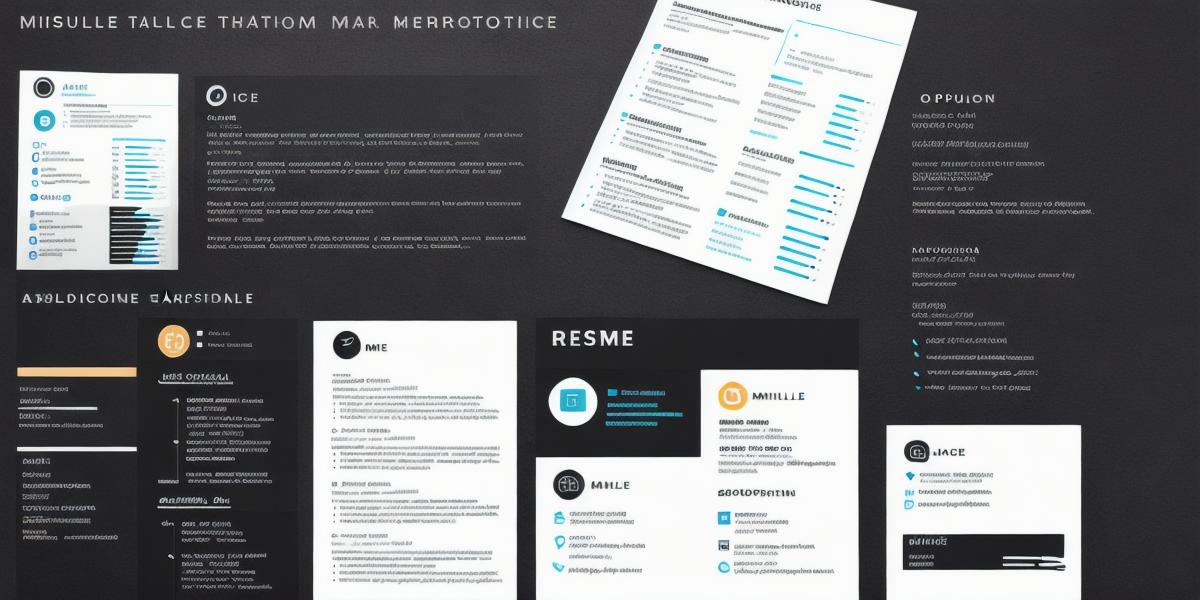The Ultimate Guide to Marketing Tools for Small Businesses: Boost Your Online Presence and Drive Sales

Marketing is an essential component of any business, big or small. It helps you reach your target audience, build brand awareness, and ultimately drive sales. However, with the vast array of marketing tools available today, it can be overwhelming for small business owners to know where to start. In this comprehensive guide, we will explore some of the most effective marketing tools for small businesses, as well as how to use them to boost your online presence and drive sales.
1. Social Media Marketing: The Power of Platforms like Facebook, Instagram, and Twitter
Social media has become an integral part of modern marketing. With billions of active users across various platforms, social media allows small businesses to reach a massive audience and build relationships with potential customers. Here are some key social media platforms that every small business should consider:
a) Facebook: With over 2.8 billion monthly active users, Facebook is one of the largest social media platforms in the world. It offers various features such as paid advertising, groups, and pages to help businesses connect with their audience and drive sales.
b) Instagram: Known for its visual content, Instagram is a great platform for small businesses that want to showcase their products or services through images and videos. It also offers paid advertising options to help businesses reach a wider audience.
c) Twitter: Twitter is an excellent platform for businesses that want to engage with their audience in real-time. It allows businesses to share updates, respond to customer queries, and participate in conversations that are relevant to their industry.
2. Email Marketing: Building Relationships with Customers through Personalized Communication
Email marketing is another effective way to reach and engage with potential customers. By building an email list, small businesses can send personalized messages directly to their audience, promoting new products, special offers, or upcoming events. Here are some tips on how to get started with email marketing:
a) Collect email addresses: You can collect email addresses through various methods such as website sign-ups, in-person forms, or social media contests.
b) Create engaging content: Craft personalized emails that are relevant to each recipient’s interests and needs. Use eye-catching subject lines, catchy headlines, and clear calls-to-action (CTAs).
c) Segment your email list: Segment your email list based on demographics, behavior, or other factors to ensure that you’re sending the right message to the right person at the right time.
3. Search Engine Optimization (SEO): Improving Your Online Visibility through Keywords and Backlinks
Search engine optimization (SEO) is the process of optimizing your website’s content and structure to rank higher in search engine results pages (SERPs). By improving your online visibility, you can attract more organic traffic to your website and drive sales. Here are some key SEO tactics that small businesses should consider:

a) Conduct keyword research: Identify the keywords that potential customers are using to find products or services like yours. Use these keywords in your website’s content, meta tags, and headings to help search engines understand what your website is about.
b) Build backlinks: Backlinks from other high-authority websites can improve your website’s credibility and search engine rankings. Reach out to other businesses in your industry and offer to exchange links or collaborate on content.
c) Use schema markup: Schema markup is a type of code that helps search engines understand the structure of your website’s content. By using schema markup, you can improve your website’s rich snippets, which can lead to higher click-through rates (CTRs).
4. Content Marketing: Sharing Valuable Information to Build Trust and Authority
Content marketing is the process of creating valuable, relevant, and consistent content that attracts and engages a clearly defined audience, ultimately driving profitable customer action. Here are some key content marketing tactics that small businesses should consider:
a) Blog posts: Writing regular blog posts on topics related to your industry can help you establish yourself as an authority in your field and attract organic traffic to your website.
b) Infographics: Infographics are an excellent way to present complex information visually and engage your audience. They can be shared on social media, embedded on your website, or used in email campaigns.
c) Videos: Videos are a great way to showcase products, services, or processes that are difficult to explain through text or images. They can also help you build trust with potential customers and establish a personal connection.
5. Pay-Per-Click (PPC) Advertising: Boosting Your Visibility with Targeted Ads
Pay-per-click advertising is a type of online ad that you pay for each time it’s clicked. It allows small businesses to target specific audiences based on demographics, interests, or behavior. Here are some key PPC platforms that small businesses should consider:
a) Google AdWords: Google AdWords is the most popular PPC platform in the world, allowing small businesses to target users who are searching for products or services like theirs.
b) Facebook Ads: Facebook Ads is an excellent platform for small businesses that want to reach a wider audience through targeted ads. You can create ads based on user demographics, interests, behaviors, and more.
c) Instagram Ads: Instagram Ads is a great platform for small businesses that want to target users visually. It allows you to create ads that are tailored to specific user interests and behaviors.
Case Study: How XYZ Small Business Used Marketing Tools to Boost Sales and Growth
XYZ Small Business was a local bakery that struggled to attract customers in a highly competitive market. They decided to try out various marketing tools to see what would work best for their business. Here’s how they used each tool to boost sales and growth:
Social Media Marketing: XYZ Small Business created social media accounts on Facebook, Instagram, and Twitter. They shared pictures of their baked goods and offered promotions for first-time customers. As a result, they saw an increase in foot traffic to their store and a boost in sales.
Email Marketing: XYZ Small Business collected email addresses from customers through in-person forms and website sign-ups. They sent regular newsletters featuring new products, special offers, and upcoming events. This helped them build a loyal customer base and increase repeat business.
Search Engine Optimization (SEO): XYZ Small Business conducted keyword research to identify the most popular search terms for baked goods in their area. They optimized their website’s content, meta tags, and headings using these keywords. As a result, they saw an improvement in their organic search rankings and an increase in website traffic.
Content Marketing: XYZ Small Business created a blog on their website featuring recipes for baked goods and behind-the-scenes looks at their bakery. They shared these posts on social media and included them in their email newsletters. This helped them establish themselves as an authority in the baked goods industry and attract new customers.
Pay-Per-Click (PPC) Advertising: XYZ Small Business created Google AdWords campaigns targeting users who were searching for baked goods in their area. They also created Facebook ads to reach a wider audience and promote special offers. As a result, they saw an increase in website traffic and sales from both paid and organic sources.
FAQs: Answering Common Questions about Marketing Tools for Small Businesses
Q: How much should I budget for marketing tools?
A: The amount you should budget for marketing tools depends on the size of your business, your target audience, and your goals. You can start small and gradually increase your budget as you see results.
Q: What is the best way to measure the success of my marketing campaigns?
A: The best way to measure the success of your marketing campaigns is by tracking key performance indicators (KPIs) such as website traffic, conversion rates, social media engagement, and sales. Use analytics tools to track these metrics and make data-driven decisions about your marketing strategy.
Q: Can I use marketing tools if my business has a small budget?
A: Yes, you can use many marketing tools even if your business has a small budget. There are free and low-cost options available for most tools, and you can also try out paid advertising to see if it works for your business.
Q: How long does it take to see results from my marketing efforts?
A: The amount of time it takes to see results from your marketing efforts depends on the tools you’re using, your target audience, and your goals. Some tools may require a few months to see significant results, while others may produce quick wins. Be patient and track your progress over time to determine what’s working best for your business.
Conclusion: Marketing Tools for Small Businesses: Boosting Sales and Growth
Marketing tools can be a game-changer for small businesses looking to grow their customer base and increase sales. By using a combination of social media, email marketing, SEO, content marketing, and PPC advertising, small businesses can reach their target audience effectively and build brand awareness. Remember to track your progress and make data-driven decisions about your marketing strategy to ensure that you’re getting the best results for your business.




